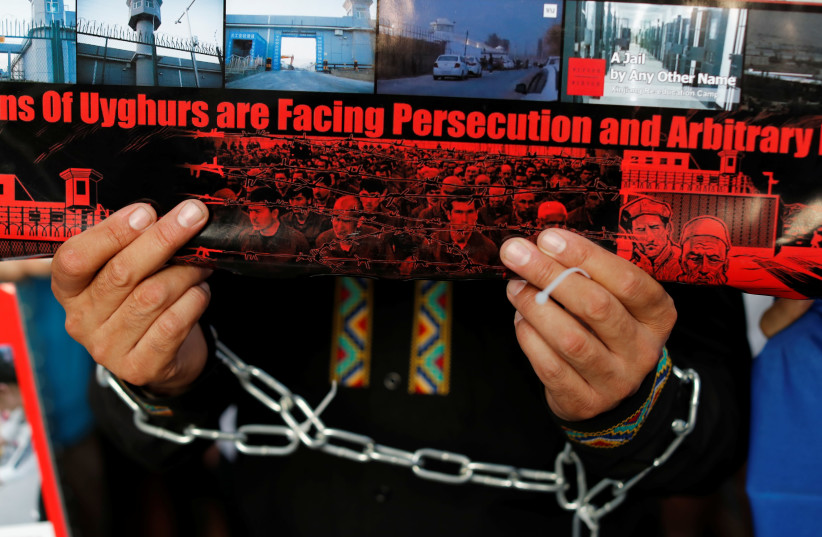In Holocaust-education program after program around the world, including at the Holocaust Memorial and Tolerance Center where I volunteer, kids as young as third grade are asked what they would be willing to do to take a stand against a genocide; what would they be willing to sacrifice to put even the tiniest dent in a genocide’s trajectory; what would they give up, from the safety that can come from not standing up and not standing out, to some of their creature comforts, to the physical safety of themselves and their loved ones? We ask to try to cultivate a sense of moral obligation – a will to be ‘upstanders,’ not bystanders, when someone else is being persecuted. And for them to be willing to do so before it is simply too late.
Some children are confident what they would (and wouldn’t) do. Perhaps a little too confident. When asked, most children I’ve observed squirm a bit, as they think through what they would and wouldn’t sacrifice, and their reasons. That squirming is precisely what we should hope for. Overall, they handle it just fine, not cowed by such a heavy question.
But apparently, this is too much to ask of the grown men and women who expect to compete in the 2020 Winter Olympics in Beijing, the seat of a government engaged at this moment in the literal and cultural genocide of millions of Uyghurs, not to mention the violent usurpation of once-free Hong Kong and the threatened violent usurpation of still-free and independent Taiwan.
According to most US “authorities,” including much of the media, the possible responses were either a diplomatic boycott by members of the US government or an all-out boycott enforced by the US government. The Biden administration has chosen by far the weaker of the given options – i.e., refusing to send diplomats to cheer for Team USA. (As the Communist Party of China quickly pointed out, the US declined an invitation that they actually hadn’t proffered.)
Why did the Biden administration choose the tamer, lamer option? In the words of the administration, it was the “right step” in order to not “penalize athletes who have been training for this moment.” As one Olympian quoted in Reuters explained, “You know, you work all your life to compete and you never want politics to get in the way of that chance… athletes should treat these Olympics in whatever way feels best for them.”

The moral narcissism is mind-boggling. What doesn’t seem to be considered at all is that the athletes themselves need to be treated as adult moral agents and held responsible for what they will do or not do.
We can have empathy for the athletes, but that empathy should hardly be enough to override our moral obligation to those suffering a genocide. The athletes didn’t ask for this choice, but they have to make it anyway. Life (surprise) can often be that way. Team America’s Olympians, with an average age of 27 and legendary grit, should know that by now. Simone Biles was applauded when she withdrew from the final competition in the Summer Olympics to concentrate on her own mental health and to try and maximize her and her team’s record. Should we not expect athletes to withdraw for others’ well-being, specifically suffering under Xi Jinping and the Communist Party’s iron fist?
The athletes can now pretend that the US government made the decision for them but that’s nonsense, because unlike the athletes of countries run by dictatorships, they are quite free to say ‘no, I choose not to compete in Beijing.’ The media, for their part, should not shy away from this question because it makes athletes being interviewed uncomfortable, because they may squirm a bit. They should prioritize it in interviews for precisely that reason.
To understand how much is at stake, just imagine what would happen to a celebrated Chinese athlete who decided to boycott. We ask third-graders to handle such questions. Can’t we expect a group of rather privileged and presumably very tough adults to handle the reality?
The writer is a professor at SUNY Stony Brook University and senior distinguished fellow of the Holocaust Memorial & Tolerance Center of Nassau County.
